Theory and Experiences of Digital TV Coverage
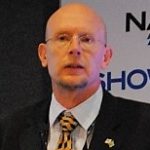
Theory and Experiences of Digital TV Coverage
Chair: José Frederico Rehme - Diretor da SET, Diretor da TVCI, professor da Universidade Positivo
José Frederico Rehme is SET Teaching Director, Coordinator and Professor of the Electrical Engineering and the Energy Engineering courses at Positivo University and Engineering Director at TVCi.
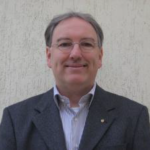
Theory and Practice of Digital TV Coverage
Block/functional diagrams, SFN and MFN coverage areas;
Use and applications in DTV transmission and reception;
'Flying by instruments' ...with current frequency figures...
Speaker: Marcello Martins - Diretor Executivo na iTVX do Brasil Com. e Serviços de Telecom Ltda
Holds a degree in Electronics Engineering, with Specialization in Telecommunications (1989) and Business Administration, graduate qualification with an MBA from USP/FIA and an extension qualification from Manchester Business School/England (2001). Specialization in satellite-based reception systems since 1982 and RF projects for terrestrial TV generators and repeaters. Began his career in the technical area at Tupi Radio e TV network in São Paulo/1978. In the 1980s, he decided to move into business, where for more than 28 years he has worked in Industry, Commerce and Engineering Services for new electronic products for HD digital reception. Currently executive Director at iTVX do Brasil Com. e Serviços de Telecom Ltda, a technical engineering projects company in the broadcasting and telecommunications field since 2008. Associate member of SET/Sociedade de Engenharia de TV, since 1986; associate member of the GESC, FEA/USP, social support since 2001, associate member of the Digital TV Forum, SBTVD (2010 to 2012)
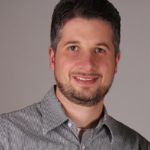
General aspects of a Digital TV project
Speaker: Anderson de Oliveira - RPC Telecom Projects - Globo affiliate - Paraná
Telecommunication Engineer by FURB Regional University Foundation of Blumenau Conclusion - 2006, Graduate in Management of People in Organizations by UNIPLAC - University of Planalto Catarinense - Conclusion 2009, Post Graduation in Computer Networks and Convergent Services in the Positivo University . Prediction of Completion in 2017. He has been working for 11 years in the Projects sector, with 7 years in the Telecom Projects sector of RPC - Affiliate Globo in Paraná.
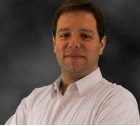
Evolution of Predictions for Regulatory Aspects and Confrontation with Field Measurements
Speaker: Paulo Eduardo dos Reis Cardoso
Doutorando / Especialista em Regulação
Universidade Estadual de Campinas / Agência Nacional de Telecomunicações
Holds a degree in Electrical Engineering from the FEEC-UNICAMP (2002) and a MSc degree in Electrical Engineering (Electronics) by DEMICFEEC-UNICAMP (2005). He is currently a PhD candidate in the LCVDECOM-FEEC-UNICAMP, searching Digital TV. Licensed from the post of Specialist in Regulating in the Anatel, where it operates in coordination of grants and resources to the provision, working with the licensing and amendment of technical characteristics of broadcasting stations. Previously, he served in the surveillance in broadcasters. He was responsible for the Technical Regulation to Broadcasting in Modulated Frequency and analysis of processes of technical feasibility for inclusion or amendment of the Basic Plan of Distribution Channels of Broadcasting in Modulated Frequency. He participated as an observer in the Federal Government in testing of Digital Radio Broadcasting, both in tests of American Standard - HD Radio, in 2008 and 2012, as in tests of the European standard - DRM, in 2010. He has worked as a telecommunications researcher of the Fundação Centro de Pesquisas e Desenvolvimento - CPqD.
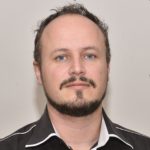
Resource optimization for TV coverage: the cost-effectiveness as a criterion for setting parameters.
Speaker: Luiz Ricardo Tonin - Coordinator of Broadcast Projects at SM Facilities
Luiz Ricardo Tonin is an electrical engineer graduated from Universidade Positivo and has 8 years of experience in the field of telecommunications engineering, with expertise in broadcasting, having worked in telephone and radio companies. He is currently Coordinator of Broadcast Projects at SM Facilities, an engineering company that provides technical, implementation and construction services to the broadcasting and telecommunications area. He is a specialist in prediction software and in transmission technician projects, he actively participates in the development of new solutions for the analog switch-off and the migration of the 700MHz band.
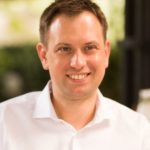
Advanced ISDB-T SFN network planning - challenges and opportunities
Speaker: Milos PAVLOVIC - Sales Director Broadcast LS telcom AG, Germany
Milos Pavlovic has a diploma in Electrical Engineering/Telecommunications. He received his DIpl. Ing and MSc degrees from University of Belgrade, Faculty for Electrical Engineering. Milos has been in the Sales & Marketing department of LS telcom AG since 2012, with more than 10 years of experience working in the broadcast industry. After joining LS telcom, he has taken over the responsibility for its broadcast customers globally.

